Table of Contents
Environmental Studies (EVS) is a fascinating and vital field that integrates multiple scientific disciplines, including chemistry, physical science, life science, agriculture, health, and sanitary engineering. It plays a crucial role in various Teaching Exams such as KVS, CTET and so on. To assist aspiring educators in their preparation for Teaching Exams, we are offering comprehensive EVS Study Notes.
These study materials serve as valuable resources to enhance candidates’ understanding and performance, leading them to achieve favourable results. By emphasizing the interdisciplinary nature of Environmental Studies and its practical relevance in educational and recruitment settings, we hope to inspire and equip candidates to excel in their pursuit of a successful teaching career.
EVS Notes
EVS subject holds the potential to be the most rewarding section in TET exams, boasting high-scoring opportunities. Although seemingly straightforward, students often make avoidable mistakes due to oversight. Recognizing the significance of the EVS section, you likely aspire to achieve a perfect score.
The beauty of the EVS section lies in its practicality, making it an integral part of both the General Knowledge segment and subject-related Pedagogy. Drawing from real-life scenarios, the questions in this section revolve around everyday aspects like food & nutrition, diseases, shelter, travel, and water, among others.
EVS Topic-Wise Weightage Marks
Here we are providing Environment Studies (EVS) weightage topic-wise in the table below for teaching exams.
| TOPIC NAME | NUMBER OF QUESTIONS |
| Friends And Family | 1 to 2 Questions |
| Shelter | 2 to 3 Questions |
| Water | 1 to 2 Questions |
| Travel | 1 to 2 Questions |
| Nutrition And Food | 3 to 4 Questions |
| Things We Make And Do | 3 to 4 Questions |
| Flora And Fauna | 4 to 5 Questions |
| EVS Pedagogy | 15 Questions |
EVS Notes PDF
The EVS section plays an important role in CTET/STET exams, especially in paper 1, and is a common component in other TET exams like CTET, BIHAR Teacher, KVS, NVS, and DSSSB. As candidates prepare for these upcoming TET and recruitment exams, they might seek effective ways to tackle the EVS section. To assist them in their preparation, we are delighted to offer a comprehensive EVS Study Material PDF, meticulously curated to enhance understanding and boost confidence, ultimately leading to success in the exams
EVS Notes Topic Wise
Environmental Studies (EVS) is an essential part of the CTET and STET exams, focusing on understanding the environment and its components. Key topics include the importance of natural resources, types of pollution (air, water, soil), ecosystems, and sustainable practices. Students learn about the interrelationship between living and non-living things, conservation efforts, and the impact of human activities on nature. EVS also covers health, sanitation, and environmental protection.
EVS Notes PDF
| Topics Name |
| Scope And Relation To Science & Social Studies |
|
Approaches & Method of Teaching Environmental Science- Updated Soon |
| Activity And Experimentation In Environmental Studies- Updated Soon |
| Teaching Learning Materials & Aids |
| Environmental Studies and Environmental Education |
| Continuous And Comprehensive Evaluation in EVS |
| Tools and Techniques of Evaluation |
| Co-Curricular Activity |

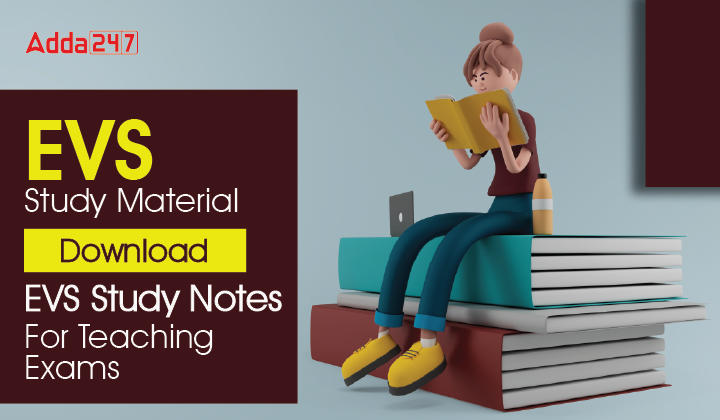
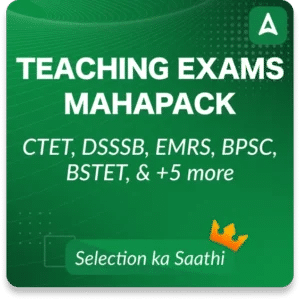

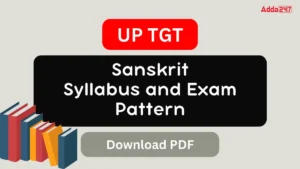 UP TGT Sanskrit Syllabus and Exam Patter...
UP TGT Sanskrit Syllabus and Exam Patter...
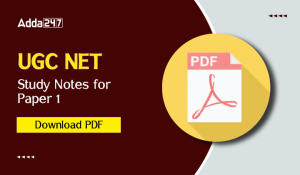 UGC NET Study Notes for Paper 1, Downloa...
UGC NET Study Notes for Paper 1, Downloa...
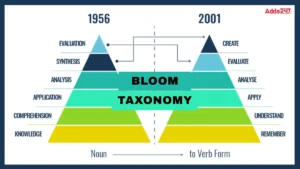 Bloom Taxonomy, Purpose, Domains, Exampl...
Bloom Taxonomy, Purpose, Domains, Exampl...




